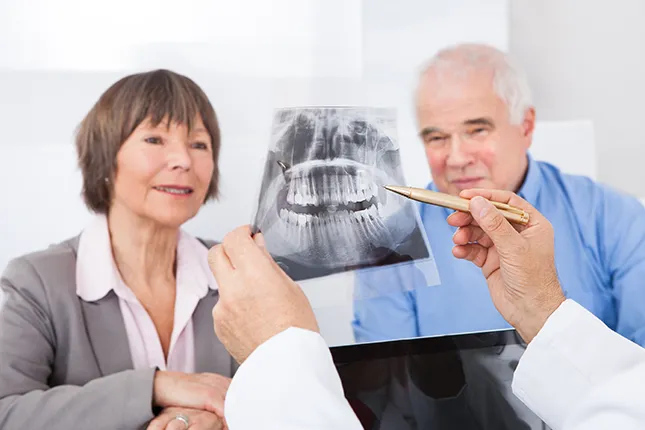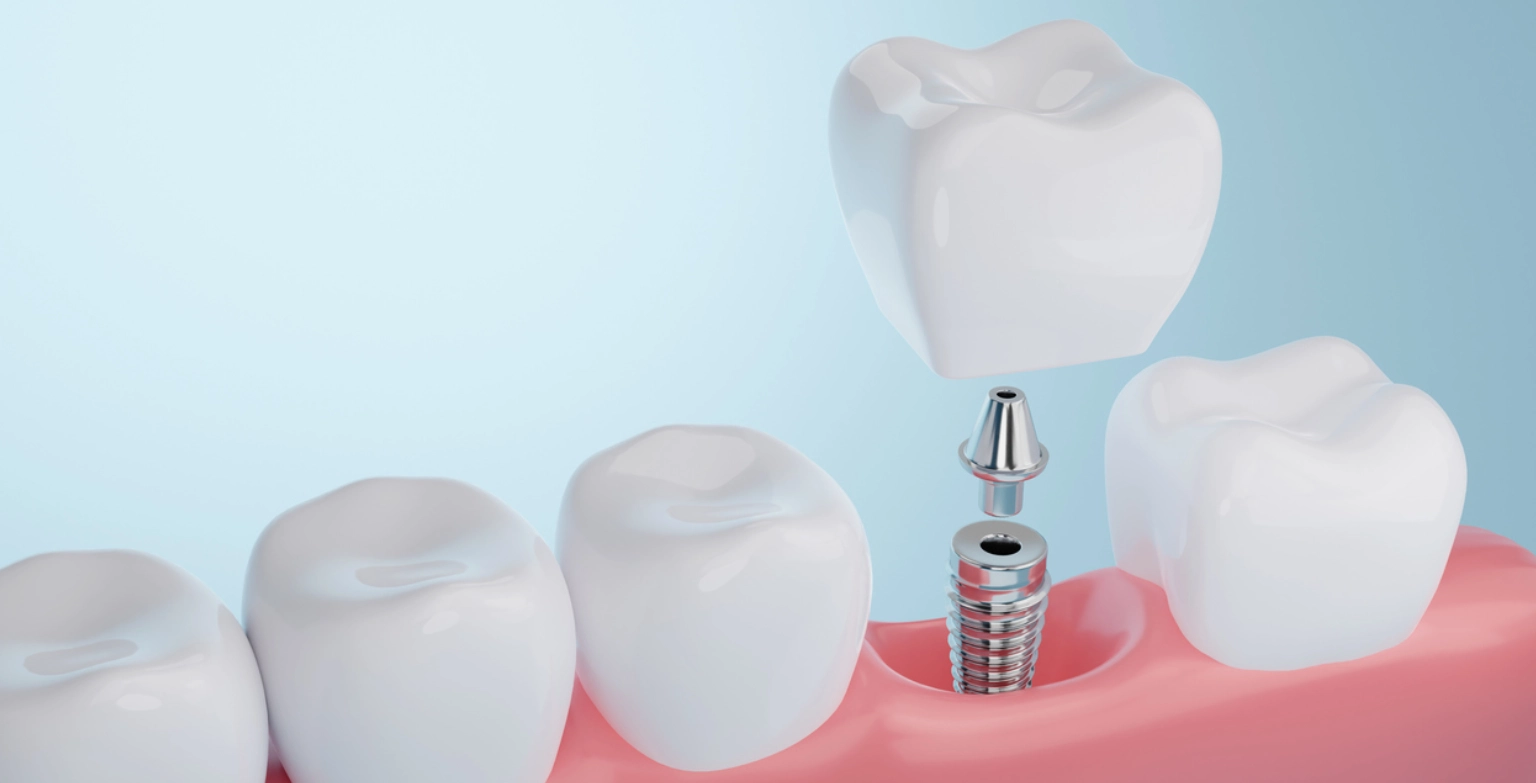How Long Do Dentures Last? – Factors that Influence Durability

Dentures are a transformative solution for millions, offering the chance to restore your smile, confidence, and oral functionality. But denture wearers and those seeking to wear them often wonder about one thing.
How long do dentures last?
The longevity of dentures isn’t just determined by their quality. From the materials that your dentures are crafted from to your habits and lifestyle choices, understanding what can affect the lifespan of dentures can help you ensure your mouthpiece’s effectiveness and longevity.
Understanding Dentures
Dentures are custom-made appliances crafted to replace missing teeth and surrounding tissues. They can offer a lifelike solution that mimics the appearance and function of natural teeth.
Dentures are designed to address various forms of tooth loss, whether partial or complete. They can also be categorized as removable or fixed, depending on whether they can be removed or anchored securely in place.

How Long Do Dentures Last?
The answer to the question, “How long do dentures last?” can vary depending on several factors, including the quality of materials used, changes in oral anatomy, how well you care for your dentures, and individual habits and lifestyle.
On average, dentures can last anywhere from five to ten years. This is, however, a general estimate. Your experience with dentures could be quite different from someone else’s. Some dentures may need replacement sooner due to wear and tear, changes in jawbone structure, or other factors.
The key to making your dentures last longer is much more than opting for the most expensive set at the dentist’s office. Proper denture care is what makes or breaks your dentures. Just like natural teeth, dentures require regular maintenance and attention to preserve their appearance and effectiveness.
Factors Affecting How Long Dentures Last
Quality of Materials
The materials used in creating your dentures play a major role in determining their durability. For instance, porcelain dentures are known for their strength and natural appearance but are more prone to chipping. On the other hand, acrylic dentures are more flexible but may wear down faster over time.
Fit & Design
The fit and design of dentures play a major role in extending the lifespan. Ill-fitting dentures can become a serious cause of discomfort, irritation, and faster wear and tear. Well-designed dentures distribute chewing forces evenly, reducing the risk of premature deterioration.
Oral Care Habits
Just like your natural teeth, dentures need looking after through regular cleaning and maintenance routines. A nice cleaning daily with a brush and a good soak in denture cleaner can help prevent plaque buildup and staining, extending the life of your prosthetic teeth set.
Lifestyle Factors
Your lifestyle habits can improve or reduce the longevity of your dentures. Consuming super sugary food and drink items, drinking excessive alcohol, or smoking a lot can stain your dentures and weaken the material.
Bone Structure Changes
Did you know that your jawbone structure is ever-changing? That being said, changes in your jawbone structure can affect denture fit and stability. Bone resorption naturally occurs after tooth loss. This may cause dentures to become loose or not fit properly.
A Comprehensive Comparison of Three Types Of Dentures

While you might feel that discomfort is the primary reason for changing your dentures, it is important to remember that loose or worn-out dentures can also lead to multiple oral health issues.
Here are some signs that could indicate that you may need to replace your dentures.
- Your dentures no longer fit properly and feel loose or uncomfortable.
- Your dentures show visible signs of wear and tear, such as worn-down teeth, cracks, chips, or fractures.
- You are experiencing difficulty chewing certain foods or have noticed changes in your speech, indicating inadequate support by your dentures.
- You are suffering from persistent discomfort or irritation while wearing your dentures.
- Your dentures no longer provide the desired aesthetic look or facial support.
- You have started facing persistent oral problems, such as gum irritation, infection, or bad breath.
- Your dentures are more than five to ten years old.
Tips to Improve the Lifespan of Your Dentures
While looking for the answer to “How long do dentures last?” you should also know what you can do to maximize the lifespan of your dentures.
- Handle with Care: Always handle your dentures with care, using both hands and avoiding dropping them.
- Clean Regularly: Clean your dentures daily with a soft-bristled toothbrush and denture cleaner to eliminate food particles, plaque, and bacteria.
- Soak Overnight: Soak your dentures overnight to keep them moist, as dry dentures may warp or crack.
- Clean Your Gums & Tongue: Brush your gums, tongue, and palate with a soft-bristled toothbrush every morning before you put on your dentures. This helps reduce the risk of gum irritation and oral infections.
- Avoid Hot Water: Never, never, never use hot water to clean or soak your dentures, as it can cause warping or distortion of the denture material. Instead, use lukewarm or cold water for cleaning and soaking.
- Protect from Damage: Avoid biting down on hard or sticky foods, using your teeth as tools, or exposing your dentures to excessive force or pressure.
- Attend Regular Check-ups: Schedule regular dental check-ups with your dentist or prosthodontist. They can detect any issues early on, provide necessary adjustments or repairs, and ensure your dentures are in optimal condition.
Conclusion
The answer to “How long do dentures last?” depends on how you care for them, changes in your jawbone structure, as well as your lifestyle choices, among other things.
The best thing you can do is ask your dental team how often you need to visit your dentist for denture maintenance. Routine dental care is highly recommended for your remaining teeth and the other parts of your mouth, such as your tongue, gums, and cheeks. Knowing how to maintain your dentures goes hand in hand with a good oral care routine.
Do not delay contacting your dentist if your dentures feel loose or uncomfortable.
Seeking Denture Solutions? Contact Brookline Smile Artists
Reclaim your smile’s brilliance and confidence with the expertise of Brookline Smile Artists.
Schedule your consultation today to discover how our skilled team can transform your smile.
Call us at (617) 433-5122 for more details.
FAQ
Can I sleep while wearing my dentures?
While it’s technically possible to sleep while wearing dentures, it’s generally not recommended. Sleeping with dentures can increase the risk of oral health issues such as gum irritation, oral infections, and the accumulation of plaque and bacteria.
What should I do if my dentures feel loose?
If your dentures feel loose, remove them and thoroughly clean them to remove any debris or adhesive residue. If they still continue to feel loose, schedule an appointment with your dentist for evaluation. Your dentist can determine the reason behind the looseness and recommend appropriate treatment.

If you are looking for a dentist in Brookline, MA, schedule your consultation with the team at Brookline Smile Artists. We offer Cosmetic and Restorative Dentistry. We are located at 209 Harvard Street, Suite 402 in Brookline. Our office hours are Monday through Thursday from 7:30 AM to 5:30 PM and Friday from 8:00 AM to 2:00 PM.

One of the top rated dentists in Brookline, MA




